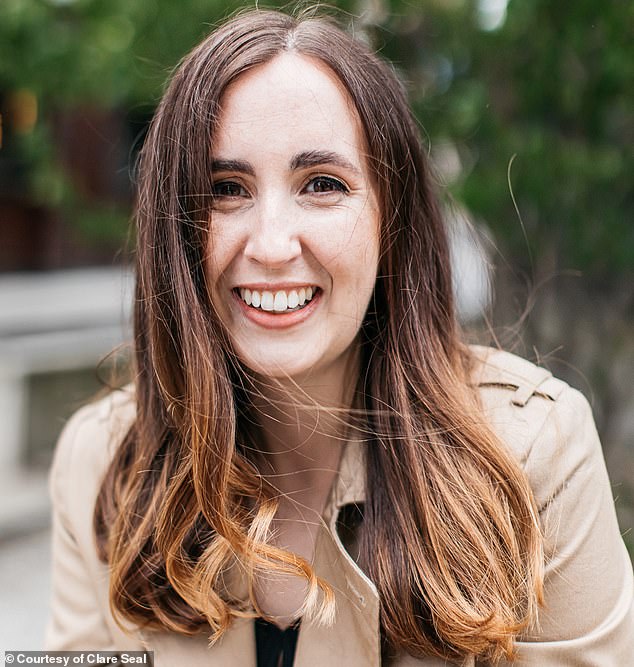Whether it is not saving for the future or taking on too much debt, anyone can make financial choices they come to rue.
In fact, half of Britons have financial regrets, a survey has revealed – including some who wished they had married someone with more money.
According to a study of 2,000 people by Unity Mutual, one in eight who admitted that they had financial regrets wished they had a richer spouse, rising to 19 per cent among people in their 70s.
The survey found that 46 per cent of respondents had not transferred money into a savings account each month and 43 per cent wished they had not spent money on pointless things.
While 34 per cent wanted to learn about finances at a younger age and 29 per cent desired a better-paid job or career.

According to a study of 2,000 people by polling firm Savanta 46 per cent of respondents had not transferred money into a savings account each month and 43 per cent wished they had not spent money on pointless things

Money expert Clare Seal, creator of the My Frugal Year account on Instagram. She said: ‘If you’re hoping to turn your financial situation around, it can feel like a big, daunting task – so try to break it down into smaller, more manageable tasks’
Other regrets include not paying enough into a pension each month and wishing they had started a pension at an earlier age.
The advice respondents would give to their younger selves included living within their means, not overspending, not getting into debt and saving a set amount each month.
Jane Nelson, chief executive of the Independent Order of Oddfellows Manchester Unity, which operates investment specialist Unity Mutual, said: ‘The rising cost of living means more people are struggling to put money aside each month as they’re having to spend it on covering day-to-day living costs instead.’
Money expert Clare Seal, creator of the My Frugal Year account on Instagram, suggested: ‘If you’re hoping to turn your financial situation around, it can feel like a big, daunting task – so try to break it down into smaller, more manageable tasks.
‘Focus on habits, rather than grand gestures, because these small, consistent acts are what will make a big difference over time. Even if you don’t feel you can afford to save enough at the moment to make significant progress towards your goals, start saving anyway.
‘Once the saving habit is established, you’ll find it easier to contribute more once your income increases or your outgoings ease off. The same goes for paying off debt, contributing to a pension, or pretty much any other positive financial habit that you want to start.
‘Make new habits easier to stick to by automating them or finding an ‘accountability partner’ – perhaps a friend with similar goals.’










